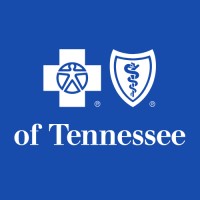BlueCross BlueShield of Tennessee (BCBS TN) is one of the state’s most widely used insurance providers, offering coverage to hundreds of thousands of individuals and families.
For those struggling with a substance disorder, having BCBS TN can be a critical first step toward getting help—but understanding exactly what your plan covers isn’t always straightforward.
Many people are unsure where to start. What kind of treatment is covered?
Do you need to stay in-network?
Will it pay for residential rehab or just outpatient visits?
These are common questions, and getting answers quickly can make a big difference in when and how you begin your recovery journey.
This guide is designed to walk you through BCBS Tennessee’s coverage for substance use disorder treatment.
We’ll explain what types of care are usually covered, how different plans (like PPOs or HMOs) affect your choices, and how to verify your benefits.
If you’re worried about using an out-of-network rehab center, we’ll explain your options there, too.
Let’s get into what you really need to know..

Does BCBS TN Cover Substance Use Disorder Treatment?
Yes—BlueCross BlueShield of Tennessee typically covers comprehensive treatment for substance addictions, including drug and alcohol rehab, under its behavioral health benefits.
Like most major insurance providers, BCBS TN follows the Affordable Care Act (ACA) and the Mental Health Parity and Addiction Equity Act. This alignment ensures that you receive high-quality care for your behavioral health needs.
These require insurers to treat behavioral health services, including addiction treatment, the same way they treat physical health care.
If treatment is considered medically necessary, it’s likely covered under your plan.
That includes services like:
- Medically Supervised Detox: 24/7 medical oversight and medication support for withdrawal.
- Inpatient or Residential Rehab: Structured programs with full-time care and therapy.
- Partial Hospitalization Programs (PHP): Day programs offering intensive treatment without overnight stay.
- Intensive Outpatient Programs (IOP): Flexible therapy for people transitioning from higher care levels or balancing work and home life.
- Ongoing Counseling and Aftercare: Continued support after initial treatment ends.
BCBS TN plans offer flexibility, allowing you to choose the best treatment for your needs.
Your coverage specifics are influenced by your plan type (such as Marketplace, employer-based, or TennCare), provider network, and treatment center’s status as in-network or out-of-network.
Types of Rehab Programs Covered by BCBS Tennessee
BlueCross BlueShield of Tennessee usually provides coverage for several different types of addiction treatment programs.
Medical Detox
- For substances like alcohol, opioids, or benzodiazepines, detox can be physically and emotionally tough, so having professional help is crucial. Detox is often the first step in the recovery process, and it involves 24/7 medical supervision of withdrawal symptoms in a safe environment.
BCBS TN often covers detox services when they are medically necessary.
Inpatient/Residential Rehab
- Inpatient treatment involves living at a center full-time while receiving structured care. This includes therapy, group counseling, medical support, and daily routines aimed at stabilizing the individual and preparing them for long-term recovery.
Residential care is often recommended for those with severe addiction, co-occurring issues, or a relapse history.
Partial Hospitalization Program (PHP)
A PHP offers full-day treatment similar to inpatient rehab, but participants return home or to a sober living environment at night.
It includes therapy, psychoeducation, medication management, and peer support.
BCBS TN may cover PHP if inpatient care is not necessary or if a person is stepping down from a higher level of care.
Intensive Outpatient Program (IOP):
- IOP is ideal for those who need structure and support but also need flexibility. It typically involves therapy several times a week—during the day or evening—to accommodate work or family obligations. This level of care helps individuals maintain progress without stepping entirely away from daily life.
Outpatient Services and Aftercare:
Once someone completes higher levels of care, outpatient therapy becomes an important part of maintaining sobriety.
This may include individual therapy, group sessions, psychiatric care, or case management. BCBS TN often covers ongoing support as part of relapse prevention and recovery maintenance.
What Addictions Does BCBS TN Cover?
BlueCross BlueShield of Tennessee does not limit addiction treatment coverage based on the specific substance a person is using.
Instead, coverage is determined by medical necessity—meaning if a person needs professional help to recover safely, their treatment may be eligible for insurance coverage regardless of the substance involved.
Here are some of the most common addictions that BCBS TN typically covers:
What Addictions Are Covered by BCBS of TX?
Blue Cross Blue Shield of Texas (BCBSTX) usually does not restrict addiction treatment coverage based on the type of substance.
Alcohol Use Disorder
Alcohol is one of the most commonly treated substances in rehab programs.
Coverage often includes detox, inpatient or outpatient care, and ongoing therapy.
Because alcohol withdrawal can be dangerous, medically supervised detox is usually considered necessary.
Opioids (Including Prescription Painkillers and Fentanyl)
BCBS TN frequently covers treatment for opioid addiction, including both prescription medications (like oxycodone or hydrocodone) and illicit opioids (i.e., heroin and fentanyl).
Given the current opioid epidemic in Tennessee, many plans support multiple levels of care for opioid use disorder.
Benzodiazepines (Xanax, Ativan, Klonopin)
Benzodiazepine addiction can be particularly dangerous due to the risk of severe withdrawal symptoms.
Insurance typically covers medically supervised detox and longer-term care to address the physical dependence and underlying causes of use.
Stimulant Use Disorders
Treatment for stimulant addiction often involves intensive behavioral therapy and structured support.
BCBS TN may cover residential or outpatient treatment, depending on the situation.
Polysubstance Use
BCBS TN recognizes how complex polysubstance addiction can be and usually covers treatment that addresses multiple dependencies simultaneously.
Most importantly, BCBS TN often includes coverage for dual diagnosis care—treatment for addiction alongside mental health conditions like anxiety, depression, or PTSD.
Addressing both is essential for long-term recovery.
BCBS TN Plan Types: What They Mean for Rehab Coverage
BlueCross BlueShield of Tennessee offers several types of health plans, and each one plays a role in what kind of addiction treatment is covered—and where you can go for help.
HMO (Health Maintenance Organization)
HMO plans are the most restrictive.
They typically only cover treatment at providers within the BCBSTX network and require a referral from your primary doctor before you see a specialist or enter a treatment program.
If you try to go to an out-of-network rehab center, your costs will likely not be covered.
While HMOs usually have lower monthly premiums and out-of-pocket costs, your provider options are more limited.
PPO (Preferred Provider Organization)
PPO plans offer much more flexibility.
You can access both in-network and out-of-network treatment providers, often without a referral.
This is ideal for those seeking specialized programs like trauma-informed care or dual diagnosis treatment, even if it means traveling out of your local area.
However, using out-of-network benefits may come with higher deductibles or coinsurance.
EPO (Exclusive Provider Organization)
EPO plans are a balance between HMO and PPO. You don’t need a referral, but you’re still limited to providers within the network.
Out-of-network care typically isn’t covered unless it’s an emergency.
When looking for a rehab facility—especially one with services like residential treatment or medical detox—it’s important to know your plan type. It will determine whether you can go out-of-network, how much you’ll pay, and what kind of preauthorization is required.
Verifying your insurance helps avoid unexpected bills and allows you to plan for any out-of-pocket costs.
How to Check Your BCBS TN Benefits for Rehab
Not sure what your BCBS of Tennessee plan covers?
Option 1: Call Member Services
Flip over your BCBS insurance card and call the customer service number. Things to ask include:
- Do I need preauthorization?
- What is my coverage for substance use treatment?
- Is detox, inpatient, or outpatient rehab included?
Option 2: Log into Your Member Portal
Go to the BCBS TN website and sign in to your member account.
Your portal may list mental health and addiction coverage, network providers, and estimated out-of-pocket costs.
Option 3: Let Tulip Hill Do the Work
If you’d prefer not to handle the insurance call yourself, we can verify your benefits for you. Our insurance verification is fast, free, and completely confidential.
We’ll contact BCBS TN on your behalf, explain your coverage clearly, and walk you through your options

What If a Rehab Center Is Out-of-Network?
Navigating insurance is hard enough—finding out the rehab center you prefer is out-of-network can feel like a setback. Even so, depending on your BlueCross BlueShield of Tennessee plan, you may still have options.
What Does “Out-of-Network” Mean?
If a treatment center doesn’t have a contract with BCBS TN, it’s then considered out-of-network.
That doesn’t always mean it’s off-limits—it just affects how much your insurance will pay and what your out-of-pocket costs may be.
PPO Plans Usually Allow More Flexibility
If you have a PPO (Preferred Provider Organization) plan, you can typically access out-of-network care. You’ll likely pay more than you would in-network, but PPOs are designed to give you choices.
For many people, that extra cost is worth it—especially if the program offers more personalized care or specialized services.
HMO and EPO Plans Are More Limited
HMO (Health Maintenance Organization) and EPO (Exclusive Provider Organization) plans often don’t allow out-of-network treatment unless it’s a true emergency.
That means rehab centers outside the BCBS TN network might not be covered at all. In these cases, private pay or financing options can help bridge the gap.
Why Choose an Out-of-Network Rehab Anyway?
There are times when going outside of your insurer’s network can make sense:
- You want trauma-informed care or dual diagnosis treatment not available locally.
- You’re looking for a veteran-specific program or specialized therapy options.
- You prefer a smaller, more private facility where you can focus fully on recovery.
Every situation is different. That’s why it’s important to verify your benefits and explore what’s possible before assuming something is out of reach.
What Will Rehab Cost with BCBS TN?
The cost of rehab with BlueCross BlueShield of Tennessee depends on a few key factors in your individual plan. These typically include your deductible, coinsurance, copay, and out-of-pocket maximum.
Deductible
This is the amount you must pay before your insurance starts covering care. If your deductible is $1,500, you’ll need to pay that amount before BCBS begins contributing.
Coinsurance
After meeting your deductible, you’re usually responsible for a percentage of the remaining costs. If your coinsurance is 20%, BCBS pays 80%, and you pay the rest.
Copays
These are set fees for certain services, like a doctor’s visit or therapy session. Depending on the level of care, some plans apply copays instead of coinsurance.
Out-of-pocket maximum
Once you hit this cap, your insurance covers 100% of approved costs for the rest of the year. This can give you peace of mind if you need extended treatment.
Example
If your deductible is $1,500, your coinsurance is 20%. You attend a $10,000 residential program, your total out-of-pocket might be under $2,500—often less if you’ve already paid part of your deductible this year.
The bottom line?
Many people pay less than they expect. And if you’re uninsured or out-of-network, Tulip Hill offers flexible payment plans to make treatment possible.
Mental Health and Dual Diagnosis Coverage
BlueCross BlueShield of Tennessee doesn’t just cover substance use treatment—it also covers mental health care. That’s especially important for people dealing with co-occurring disorders (also called “dual diagnosis”).
Dual diagnosis treatment is when you receive care for both addiction and mental health conditions at the same time.
This integrated approach is critical because mental health issues often play a major role in addiction.
BCBS TN typically provides coverage for conditions including:
- Generalized Anxiety Disorder
- Post-Traumatic Stress Disorder (PTSD)
- Major Depressive Disorder
- Bipolar Disorder
- Panic attacks and mood disorders
At Tulip Hill Recovery, our clinical team specializes in trauma-informed, dual diagnosis care.
That means your therapy doesn’t just address your substance use—it also digs into the emotional patterns, trauma, or mental illness that may be fueling it.
Treating both at once leads to more sustainable outcomes and fewer relapses—and most BCBS TN plans cover this level of care.
No Insurance? Here’s What You Can Do
Insurance isn’t the only path to recovery, and at Tulip Hill Recovery, we’re committed to making treatment accessible to as many people as possible.
- Private Pay: You can pay out of pocket for treatment services. Some clients choose this for privacy or flexibility.
- Sliding Scale Fees: Depending on your situation, you may qualify for adjusted rates based on income.
- Financing Plans: Tulip Hill works with financing partners to offer payment plans that make the cost of care more manageable.
- State Resources: You can also explore health insurance options through Healthcare.gov to see if you qualify for coverage under the ACA.

Why Tulip Hill Recovery is a Trusted Option
Tulip Hill Recovery stands out because we blend high-quality clinical care with a warm, personalized approach.
- Evidence-Based Care: We use proven therapies like CBT, EMDR, and DBT to treat substance use and co-occurring mental health disorders.
- Trauma-Informed Staff: Every member of our team is trained to understand the impact of trauma and respond with compassion and safety—not judgment.
- Veteran and First Responder Programming: Our treatment includes tracks for those who’ve served in high-stress roles, offering specialized trauma care and peer support.
- Individualized Treatment Plans: We tailor your plan based on your history, needs, and recovery goals—whether that includes detox, therapy, mental health care, or all of the above.
FAQs About BCBS of TN Insurance and Rehab
Will BCBS TN cover detox or inpatient treatment?
Yes. Most BCBS Tennessee plans include coverage for medically necessary detox and inpatient rehab under behavioral health benefits. This can consist of 24/7 monitoring, medication support, and structured therapy.
What are my out-of-pocket costs likely to be?
Your costs depend on your specific plan. You may have to meet a deductible and pay coinsurance or copays.
For example, if your plan has a $1,500 deductible and 20% coinsurance, your share for a $10,000 treatment stay may be under $2,500. Each plan is different, so verification is key.
Do I need a referral to go to rehab?
If you have a BCBS TN HMO, a referral from your primary care provider might be needed.
PPO and EPO plans often don’t need referrals. Always check your plan or use our insurance verification tool to be sure.
Can I use BCBS TN if the facility is out of state?
Yes—especially if you have a PPO plan. These plans often include out-of-network benefits. Even with an HMO or EPO, you might still be eligible depending on medical necessity and the facility’s offerings.
Many Tennessee residents use BCBS TN for treatment at facilities like Tulip Hill in Murfreesboro or other nearby states.
How long can I stay in treatment?
BCBS TN determines treatment length based on medical necessity. That means your provider will justify your need for continued care.
Some people stay for a few weeks, others longer. It depends on your progress and needs.
What if I need follow-up care after rehab?
BCBS TN typically covers aftercare, including outpatient therapy, medication management, and relapse prevention support.
Tulip Hill provides step-down care options like IOP and aftercare planning to help you stay supported.
Ready to Get Answers? Start With One Call
Trying to understand your insurance benefits can feel overwhelming, but it doesn’t have to be. With just one call or form, you can get real answers about what BCBS TN will cover for drug and alcohol rehab.
You don’t have to keep wondering, waiting, or worrying. You’re not alone—and your insurance might cover more than you think.

Check Your Insurance Coverage
Your insurance may pay for all of your addiction treatment. Call for a confidential conversation with a treatment provider about your financial options.







 Call Us
Call Us
 877-845-8192
877-845-8192